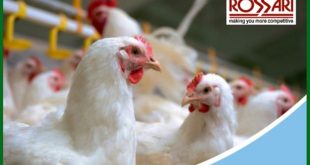 Dr. Md. Gazi Golam Mortuza : 07th October 2024, World Cotton Day is observed to celebrate the global importance and significance of cotton. Cotton is grown in over 75 countries and traded worldwide. It’s a poverty-alleviating crop in some of the least developed countries in the world, providing sustainable and decent employment to people across the globe. It biodegrades quickly compared with synthetic alternatives, decreasing the amount of plastics entering our waterways and helping to keep our oceans clean. It’s the only agricultural commodity that provides both fiber and food. As a crop it grows in arid climates, it thrives in places no other crop can.
Dr. Md. Gazi Golam Mortuza : 07th October 2024, World Cotton Day is observed to celebrate the global importance and significance of cotton. Cotton is grown in over 75 countries and traded worldwide. It’s a poverty-alleviating crop in some of the least developed countries in the world, providing sustainable and decent employment to people across the globe. It biodegrades quickly compared with synthetic alternatives, decreasing the amount of plastics entering our waterways and helping to keep our oceans clean. It’s the only agricultural commodity that provides both fiber and food. As a crop it grows in arid climates, it thrives in places no other crop can.
Objectives of world Cotton Day is annually observed for the purposes to raise awareness of the importance of cotton and cotton-related products, to highlight the vital role that cotton plays in economic development and poverty alleviation in least-developed countries, and to promote the international trade of cotton and enable developing and least-developed countries to benefit from the cotton supply chain industries.
World Cotton Day is celebrated in order to raise the visibility of the cotton sector and create awareness about the role that cotton plays in economic development and international trade. This day is annually observed to raise awareness about the importance of cotton and cotton related products and to promote the international trade of cotton. On this day we must know about the importance of cotton cultivation and its trade and we can raise awareness about cotton.
Cotton is one of the most common fabrics which are comfortable, hypoallergenic, breathable and durable. But cotton represents so much more than just a commodity. This natural fabric is a life-changing product worldwide that sustains 32 million growers (almost half of them women) and benefits over 100 million families across 80 countries in 5 continents. This means that, behind any cotton clothing, following back its trade chain, there is a personal story.
Basic human needs are food, clothing, shelter, medical care and education. From the point of view of civilization, clothing is our first basic need. The basic and main ingredient of this textile industry is cotton. At one time the muslin of Bangladesh was world famous. The royal saree “muslin” made in this country was world famous. This muslin cotton was produced in this country. During the British rule, that cotton and muslin was lost in time. Again, at present, the textile and garment sector is the main export and foreign exchange earning sector of Bangladesh.
Cotton is a soft, fluffy staple fiber that grows in a boll, or protective case, around the seeds of the cotton plants of the genus Gossypium in the mallow family Malvaceae. The fiber is almost pure cellulose and can contain minor percentages of waxes, fats, pectins, and water.
Cotton is a safety net for the least-developed and developing countries. It’s a major source of income and livelihood for many rural laborers and smallholders. While occupying 2.1% of the world’s arable land, cotton meets 27% of the world’s textile needs, and almost nothing from the product is wasted. It’s used in animal feed, cosmetics, edible oils, fuel, textiles, and more and benefits more than 100 million families across 75 countries on five continents. About 80-85 lakh bales of fiber cotton are required annually for the 450 spinning mills of the textile sector in Bangladesh, the bulk of which is met by imports from abroad and this demand is increasing. About 25-30 thousand crores taka have to be spent every year to import this amount of cotton. At present, only three percent of the total demand can be met in our country, the remaining 97 percent of cotton has to be imported from abroad. 4500 Garments and other sectors of ready-made garments directly involve about 50 lakh people. Considering these, World Cotton Day is very important for Bangladesh. In the financial year 2022-23, the textile sector earned 46.99 billion US dollars. Moreover, 84% of our foreign exchange earnings come from the garment sector. One ton of cotton provides employment to five people on an average for almost a year. Among agricultural crops, cotton is the only crop from which both food and clothing are obtained.
Therefore, World Cotton Day 2024 is very important in terms of economic importance for Bangladesh. It is grown primarily as a fibre crop, but after the lint, the long twisted unicellular hairs are removed by ginning, the seed can be crushed to extract vegetable oil and protein rich animal food. More than 100 countries are involved in export and import of raw cotton. It provides food, animal feed, fibre and fuel. It sustained millions of people for their livelihood at farms, ginning factories, textile mills, edible oil and soap industry etc.
At first the WTO hosted the launch of World Cotton Day on 7 October 2019 following an initiative of the Cotton-4 countries. The event was organized by the WTO Secretariat in collaboration with the secretariats of the United Nations Food and Agriculture Organization (FAO), the United Nations Conference on Trade and Development (UNCTAD), the ITC and the International Cotton Advisory Committee (ICAC).
The United Nations General Assembly took decision on 30 August 2020, to officially recognize 7 October as World Cotton Day as submitted by the Cotton- 4 countries. The UN resolution (A/RES/75/318) proclaiming World Cotton Day acknowledges and recognizes its broader economic and social impact around the world. From that time, every year cotton producing and consuming countries observe World Cotton Day.
Through the world cotton day 2024, we want to reach every stakeholder who is the key audiences such as producers, mills or manufacturers, brands or retailers, consumers, academicians, researchers, media personnel, NGOs and Government authorities. Producers increase production of cotton and influence planting choice, mills/manufacturers increase consumption of cotton and production of cotton goods, brands/retailers increase preference of cotton and influence sourcing decision, last of all consumers increase demands and preference for cotton. Academicians educate on the benefits and the value of cotton to creates positive perceptions, researchers encourage funding for research to promote continuous improvement and innovation in the cotton industry. Media dispel negative myths about cotton, NGOs educate and develop positive partnerships, and last but not least Government authorities support cotton friendly production and trade policies.
From the ancient time, the finest cotton fabric- Moslin once produced in medieval Bengal was famous throughout the world. The cotton for producing Moslin was grown on high lands around Dhaka where most muslin handlooms were located.
The year 2009 was assigned the international year of natural fibres by the UN. Natural fibre industries employ millions of people all over the world, especially in the developing countries. As the major non-food commodity natural fibres and their products are processed in many small and large industries and consumers all over the world profit from the provided products.
Cotton is produced all over the world and one single tonne of cotton provides almost one year-round employment for five people on average. Cotton crop is perfectly suited for regions with an arid climate. Overall, cotton occupies just 2.1 percent of the world’s arable land and yet meets 27 percent need of the world’s textile sector. While cotton fibre is used in textiles and clothing apparel, food products like edible oil are obtained from cotton and its seed is used as animal feed.
Cotton is used by millions every single day across the world and the demand for cotton is expected to rise over the coming years. This hike in demand has increased the need for sustainable cotton. Ways to produce cotton while caring for the environment are at the forefront of conversations in the drive for sustainability. Conventional cotton production currently accounts for 18 percent of worldwide pesticide use and producers of cotton are being poisoned by heavy pesticide use. Sustainable cotton production is the solution to these issues. It reduces the use of hazardous chemicals, uses less water, and reduces poverty for cotton farmers.
Government and other policy makers should develop positive support to boost up the cotton production. World Cotton Day, 2024 is an opportunity to show the positive impact on cotton, which will continue to have in the future and convince the international community to join the celebration. It plays a vital role in the national economy of different countries since cotton benefits more than 100 million families in over 75 countries of the world. World Cotton Day serves as a key opportunity to spread knowledge and showcase cotton-related activities and products. So, World Cotton Day-2024 has an importance and significant role to all stakeholders on economic and social aspect.
Author: Soil Nutrition and Water Management Specialist. Cotton Development Board.
References:
1.https://www.oliveboard.in/blog/world-cotton-day/
2. https://nationaltoday.com/world-cotton-day/
3. https://www.un.org/en/observances/cotton-day
4. https://www.genevaenvironmentnetwork.org/events/world-cotton-day-2024/
 Agrinews24 কৃষির সাথে, কৃষকের পাশে
Agrinews24 কৃষির সাথে, কৃষকের পাশে





















